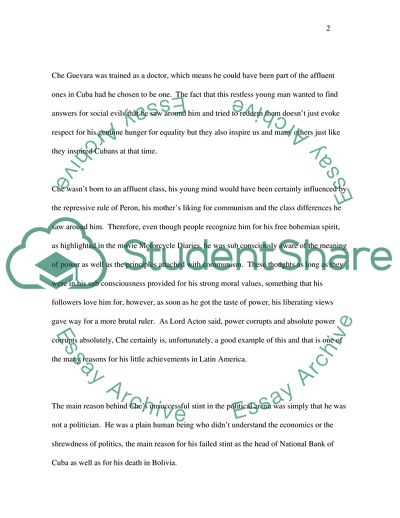Cite this document
(Che Guevara's Iconic Status Essay Example | Topics and Well Written Essays - 2500 words, n.d.)
Che Guevara's Iconic Status Essay Example | Topics and Well Written Essays - 2500 words. https://studentshare.org/history/1723147-for-all-his-iconic-revolutionary-status-che-guevara-achieved-little-for-the-people-of-latin-americadiscuss
Che Guevara's Iconic Status Essay Example | Topics and Well Written Essays - 2500 words. https://studentshare.org/history/1723147-for-all-his-iconic-revolutionary-status-che-guevara-achieved-little-for-the-people-of-latin-americadiscuss
(Che Guevara'S Iconic Status Essay Example | Topics and Well Written Essays - 2500 Words)
Che Guevara'S Iconic Status Essay Example | Topics and Well Written Essays - 2500 Words. https://studentshare.org/history/1723147-for-all-his-iconic-revolutionary-status-che-guevara-achieved-little-for-the-people-of-latin-americadiscuss.
Che Guevara'S Iconic Status Essay Example | Topics and Well Written Essays - 2500 Words. https://studentshare.org/history/1723147-for-all-his-iconic-revolutionary-status-che-guevara-achieved-little-for-the-people-of-latin-americadiscuss.
“Che Guevara'S Iconic Status Essay Example | Topics and Well Written Essays - 2500 Words”. https://studentshare.org/history/1723147-for-all-his-iconic-revolutionary-status-che-guevara-achieved-little-for-the-people-of-latin-americadiscuss.


